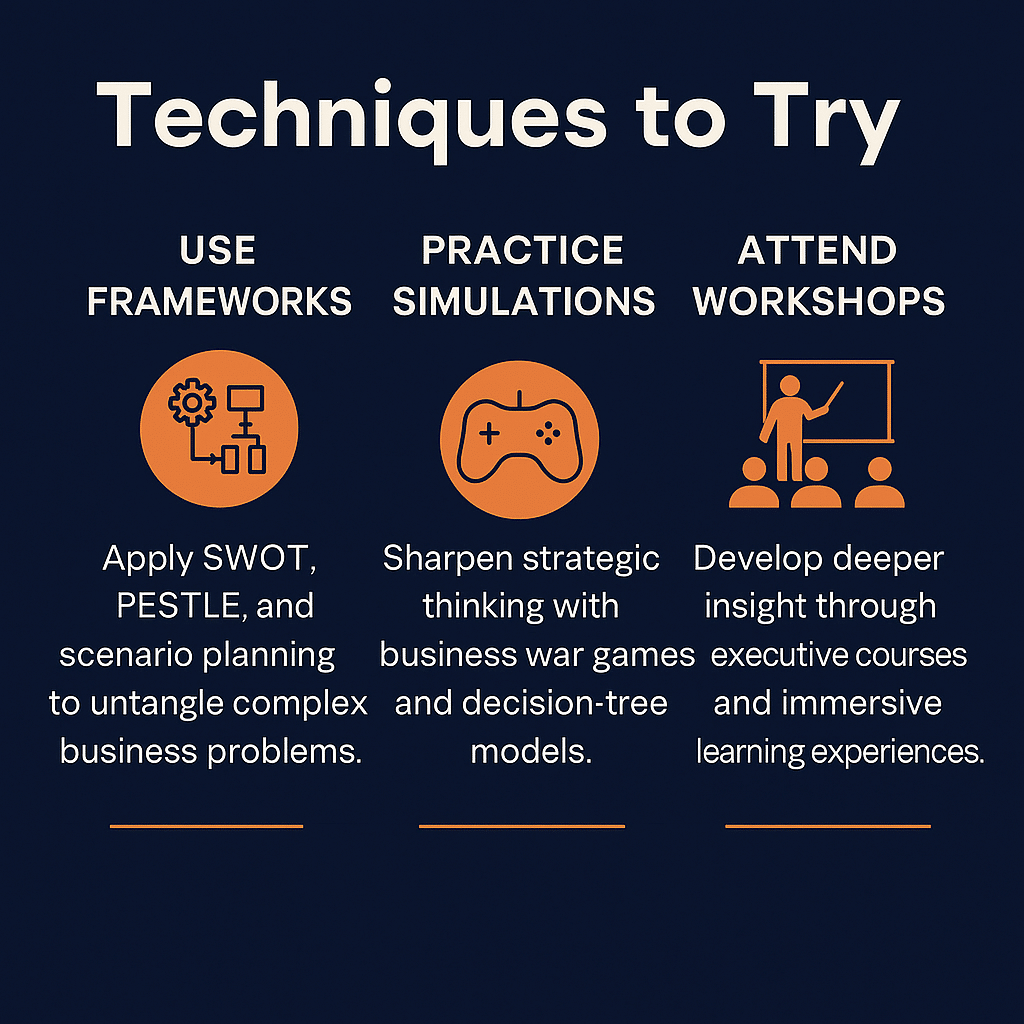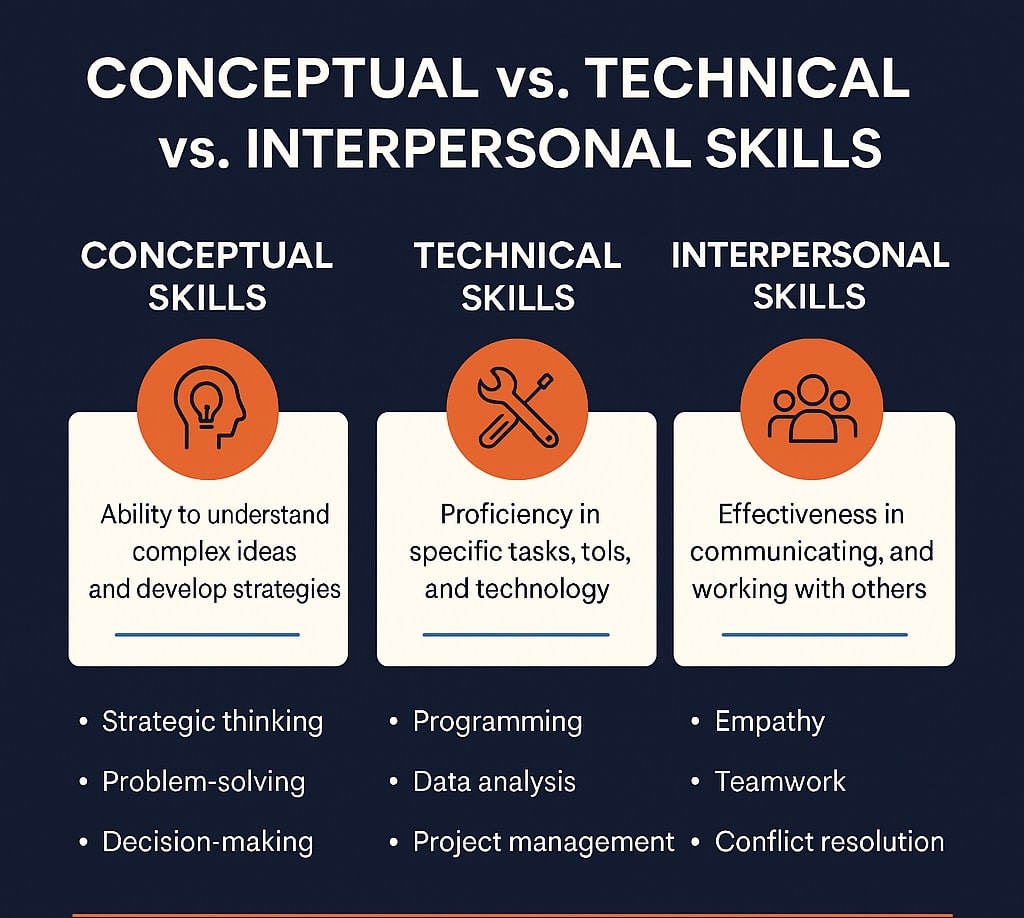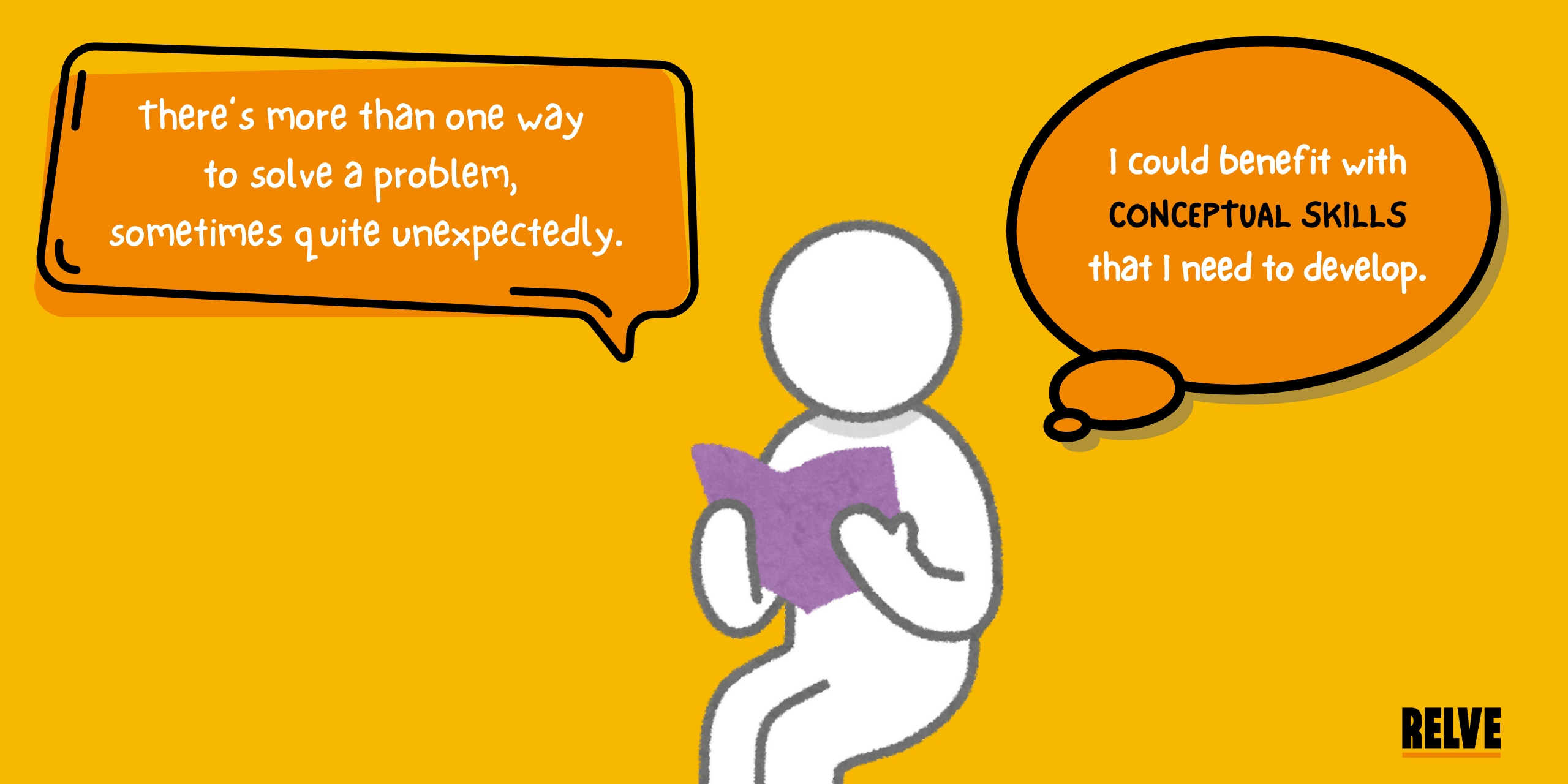Feeling overwhelmed by the pace of change in today’s workplace? You’re not alone. With 85% of jobs that will exist in 2030 not yet invented, professionals are under pressure to prepare for uncertainty. Conceptual skills are one set of capabilities that quietly but powerfully drive long-term success amid this change.
– Dell Technologies
Often overlooked, conceptual skills empower individuals to see the bigger picture, connect abstract ideas, and navigate complexity. These cognitive abilities are not just nice to have – they are becoming the backbone of future-ready leadership, innovation, and strategy.
This blog explores what conceptual skills are, why they matter now more than ever, and how you can cultivate them to thrive in tomorrow’s world of work.
What Are Conceptual Skills?
Conceptual skills are understanding abstract ideas, analyzing complex relationships, and envisioning systems-level solutions. These skills help professionals frame problems creatively and make strategic decisions based on the interplay of multiple moving parts.
They are distinct from technical and interpersonal skills:
- Technical skills are about doing—using tools, processes, and technology.
- Interpersonal skills are about relating, communicating, and collaborating.
- Conceptual skills are about thinking, analyzing, strategizing, and connecting ideas.
In short, conceptual skills are the cognitive capacity to work with ideas, models, and systems to make sense of ambiguity and guide long-term success.
Test Your Understanding
Q1: What do conceptual skills help professionals do?
Reveal Answer
Interpret complex systems and develop strategic, abstract solutions.
Q2: How are conceptual skills different from technical skills?
Reveal Answer
They involve thinking and planning rather than doing and executing.
Q3: Where are conceptual skills most visible?
Reveal Answer
Leadership, innovation planning, cross-functional strategy sessions.
Why Conceptual Skills Are Most Essential for Today’s Workforce
We live in a VUCA environment—volatile, uncertain, complex, and ambiguous. Professionals must develop mental agility and foresight to thrive in this environment.
Emerging trends like artificial intelligence, decentralized teams, and hybrid work are changing the skill landscape. Routine roles are being automated, and what remains is profoundly human and strategic.
Conceptual thinkers can:
- Anticipate future challenges before they arise.
- Understand how different parts of a business affect each other.
- Develop long-term plans that are both visionary and executable.
The World Economic Forum’s 2023 Future of Jobs report says that analytical and creative thinking, core parts of conceptual skills, are the two most important that employers seek. These skills are essential for navigating uncertainty, innovation, and multidisciplinary collaboration.
Conceptual Skills: Leadership and Management
Managers and leaders should use conceptual skills to navigate ambiguity, inspire others, and make sound decisions.
In Leadership
Leaders use these skills to:
- Inspire innovation by connecting vision to daily work.
- Guide teams through complexity and change.
- Design strategies that are both practical and aspirational.
A leader with strong conceptual thinking can unite departments around shared goals—even when the path forward is unclear.
In Management
In management, these skills help executives and middle managers:
- Evaluate the long-term impact of operational decisions.
- Align policies and processes with the company’s mission.
- Solve complex problems that span departments or markets.
These skills are especially valuable for managers in agile environments, where rapid change demands flexible, high-level thinking.
Practical Examples of Conceptual Skills
Let’s bring this to life with some examples in everyday business:
- A product leader designs a roadmap for this quarter and a three-year innovation pipeline.
- An HR director restructures the talent pipeline based on evolving skill needs and automation trends.
- A marketing strategist interprets global trends and translates them into regional campaigns.
These examples highlight how these skills are tied to:
- Strategic planning
- Market analysis
- Cross-functional collaboration
The above skills are linked to cognitive capabilities like critical thinking, systems thinking, and abstract reasoning.
How to Develop Conceptual Skills
As with any skill, conceptual thinking can be developed through intentional practice and mindset shifts.

Everyday Habits to Build:
- Ask “what if” and “why” questions during team discussions.
- Read widely across disciplines—economics, sociology, design, etc.
- Reflect on decisions and identify patterns in wins and failures.
Checklist: Strengthen Your Conceptual Thinking
Conceptual Skills at the Workplace
Where do you think conceptual skills at the workplace shine? The answer is: across all departments.
- Human Resources: Designing future-focused workforce strategies.
- Marketing: Aligning brand vision with audience psychology.
- Product Development: Balancing user needs, tech trends, and long-term growth.
- Operations: Coordinating systems that keep the business moving efficiently.
Companies that foster conceptual thinking build more agile, strategic, and innovative teams. Hiring processes now often include case studies or scenario tasks to evaluate these skills.
Here’s how these skills differ from other essential workplace skills:

Conclusion
As we move towards a future filled with change, complexity, and opportunity, one thing is clear: these skills are necessary for professionals at every level.
They empower us to lead with vision, plan with insight, and respond with agility. Don’t wait for the future -start building these skills now. Ask more profound questions, seek broader insights, and always think one step ahead.
